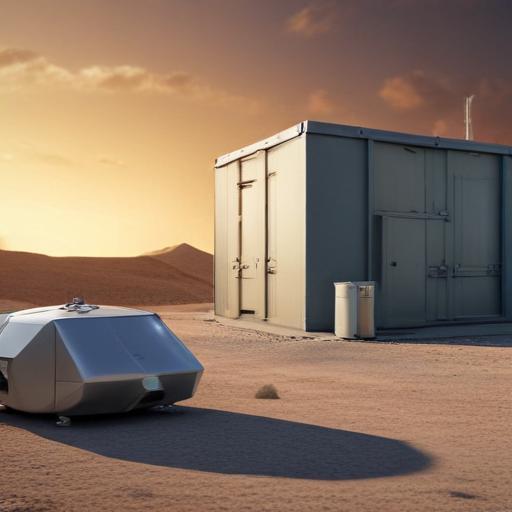Oklo, a U.S.-based company specializing in micro nuclear power plants, announced on Wednesday that the U.S. Defense Department’s energy logistics agency plans to award a power purchase agreement for a pilot reactor. This development is significant as nuclear power companies are actively pursuing contracts with the U.S. military, particularly following recent executive orders by former President Donald Trump aimed at promoting nuclear power.
The pilot reactor, intended for the Air Force, has the potential to generate up to 75 megawatts of electricity, along with usable heat. While this output is modest compared to the typical average of 1,000 megawatts from conventional reactors, Oklo’s smaller units are designed for easier replication in manufacturing settings.
While the agreement is not yet finalized, the proposed terms stipulate that Oklo will take full responsibility for the design, construction, ownership, and operation of the power plant, which will provide electricity and heat to Eielson Air Force Base in Alaska under a long-term contract. However, the financial details of the agreement remain undisclosed.
In a setback, the U.S. Nuclear Regulatory Commission (NRC) denied Oklo an operational license in 2022. The company is planning to reapply for the license in late 2025, with hopes of securing approval in 2027. Trump’s administration has called on the NRC to expedite license issuance within an 18-month timeframe.
In previous developments, the military initially reached an agreement for Oklo to construct a microreactor at Eielson by the end of 2027, though that intent was later withdrawn in 2023, leading to the termination of a contract worth over $100 million.
Additionally, there have been concerns about nuclear proliferation associated with Oklo’s project, particularly the use of plutonium, which can be a component in nuclear weaponry. However, Oklo assures that the plutonium will be encapsulated within other high-radioactive materials, which would render it almost impossible to utilize as fissile material.
This innovative approach to nuclear power represents a potential shift in energy logistics for the military, as it strives for greater energy independence and sustainability. The success of such projects could pave the way for broader acceptance and implementation of microreactors in various sectors.
